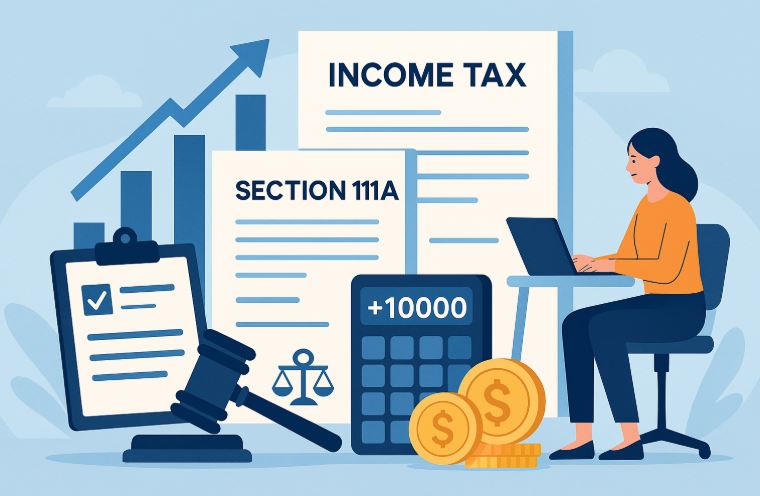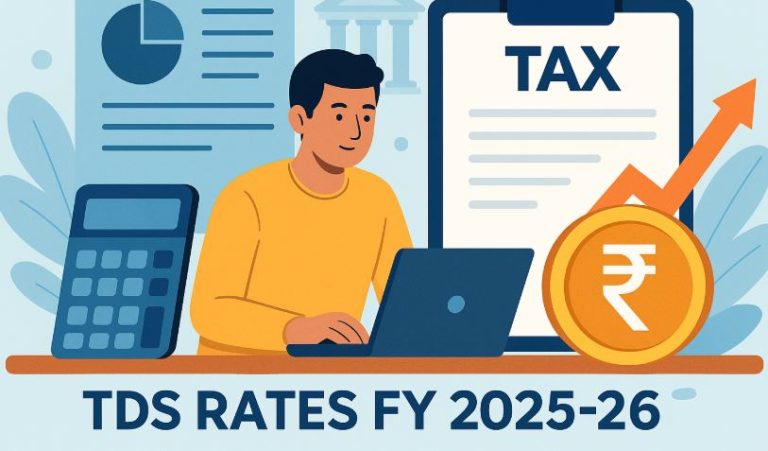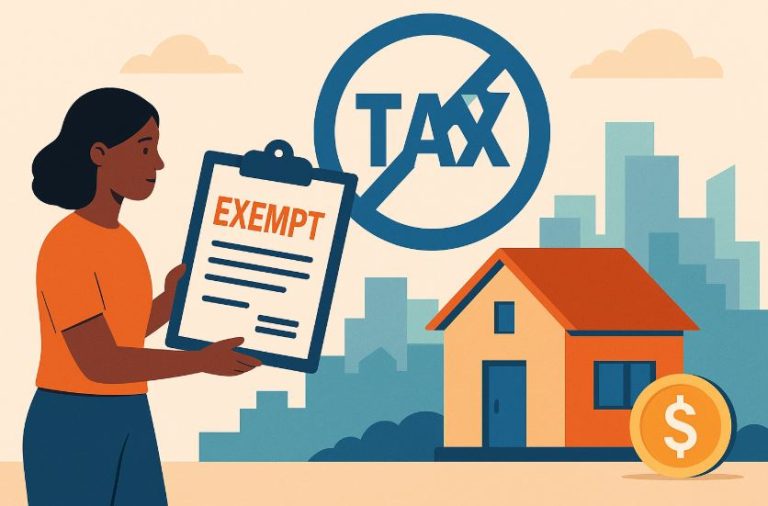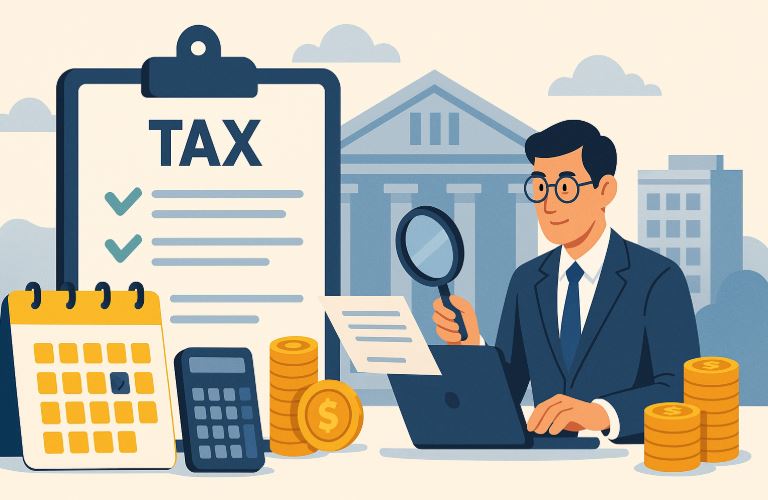Understanding how your short-term profits from shares and mutual funds are taxed is essential for effective financial planning. Section 111A of the Income Tax Act outlines how gains from certain equity investments are treated when sold within a year.
With recent changes in the tax rate from 15% to 20%, it’s crucial for investors to know when this section applies, how it’s calculated, and what exceptions exist to avoid surprises during tax filing.
What is Section 111A of the Income Tax Act?
When it comes to stock market investments or mutual funds, knowing how your profits are taxed is as important as making the right investment decision.
One crucial provision that defines tax treatment on short-term gains is Section 111A of the Income Tax Act. But what exactly is it, and why does it matter to so many investors?
Section 111A specifically deals with short-term capital gains (STCG) arising from the sale of certain financial instruments. This section is applicable when you sell the following types of assets within a 12-month holding period:
Recognised Financial Assets Covered
- Equity shares listed on recognised Indian stock exchanges such as NSE or BSE
- Equity-oriented mutual funds, where more than 65% of the portfolio is in equities
- Units of business trusts such as Real Estate Investment Trusts (REITs) or Infrastructure Investment Trusts (InvITs)
For Section 111A to be applicable, the transactions must be made on a recognised stock exchange, and Securities Transaction Tax (STT) must be paid at both purchase and sale stages. If these conditions are met, the STCG is taxed at a flat rate of 20% as per the updated 2024 tax laws.
It’s important to distinguish Section 111A from Section 112A, which deals with long-term capital gains (LTCG) on the same assets. While 112A applies after a 12-month holding period, 111A governs gains made within that timeframe.
Section 111A is particularly relevant to active traders and short-term investors, especially those frequently buying and selling shares or mutual fund units. Knowing how these gains are taxed can help optimise investment strategies and minimise surprises during tax filing season.
How Does STCG Apply Under Section 111A?
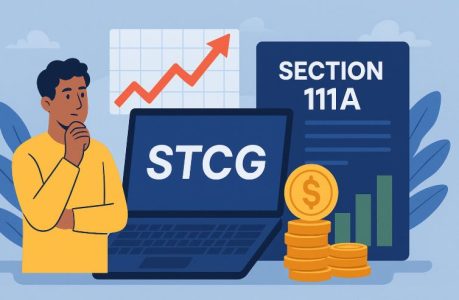
Understanding the mechanics of short-term capital gains (STCG) under Section 111A involves more than just knowing the applicable rate. There are clear-cut conditions that determine when your gains qualify for this special tax treatment.
Conditions for Applicability
- The sale must occur on a recognised Indian stock exchange
- Securities Transaction Tax (STT) must be paid during both purchase and sale
- The holding period must be less than 12 months
If these criteria are fulfilled, your gains are treated as STCG under Section 111A and taxed accordingly.
However, there are notable exceptions where STT is not mandatory but Section 111A still applies. For instance, sales conducted through International Financial Services Centres (IFSCs) and settled in foreign currency are also covered even if STT isn’t paid.
Non-Qualifying Transactions
Gains arising from these types of assets do not fall under Section 111A:
- Real estate
- Debt mutual funds
- Unlisted shares
- Jewellery or other movable assets
Such transactions are taxed either based on the applicable slab rate or under other capital gains provisions of the Income Tax Act.
Understanding whether your investment falls under Section 111A is the first step toward accurate tax planning.
Why Was the STCG Tax Rate Increased to 20% in 2024?
The 2024 Union Budget introduced a notable change for investors by increasing the STCG tax rate under Section 111A from 15% to 20%. This revision stirred attention among market participants and financial planners.
The earlier 15% rate was considered relatively low, especially when compared to the regular income tax slabs for high-income earners. Many high-net-worth individuals (HNIs) were benefitting disproportionately by leveraging short-term trading and booking profits at a low tax rate.
Key Reasons for the Tax Hike
- Equity in Taxation: The new rate aims to reduce the advantage enjoyed by wealthy traders.
- Revenue Generation: Increasing the rate could help the government in bridging the fiscal deficit.
- Balanced Tax Structure: It aligns STCG tax rates closer to those applicable for other asset classes.
It’s essential to note that this new 20% rate applies only to assets under Section 111A, such as listed equity shares, equity mutual funds, and business trusts.
Gains from other assets continue to be taxed based on the applicable rules, which often vary with holding period and asset type.
For active investors, this change makes it all the more crucial to revisit portfolio strategies, perhaps shifting focus toward long-term holdings or tax-saving instruments.
Who is Eligible to Claim the Basic Exemption Against STCG Under Section 111A?
Section 111A comes with a unique provision that benefits resident individuals and Hindu Undivided Families (HUFs). Under specific conditions, they can adjust their short-term capital gains against their basic income tax exemption limit.
This benefit is not automatically available to all taxpayers. In fact, non-residents and foreign investors are excluded from this provision and must pay the STCG tax at the flat rate, without the benefit of an exemption adjustment.
Eligibility for Basic Exemption Adjustment
| Category | Eligible for Adjustment | Notes |
| Resident Individuals | Yes | Up to exemption limit |
| Resident HUFs | Yes | Similar rules apply |
| Non-Resident Individuals | No | Flat tax rate applies |
| Foreign Institutional Investors (FIIs) | No | Capital gains fully taxable |
This benefit offers room for tax savings, particularly for low-income investors or those with minimal taxable income outside capital gains.
When Can STCG Be Adjusted Against the Basic Exemption Limit?
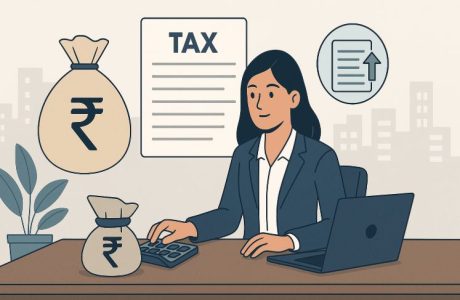
This provision allows eligible taxpayers to use any unused portion of their basic exemption limit to offset their taxable short-term capital gains under Section 111A.
Example:
Suppose a taxpayer under 60 years of age has the following income:
- Salary: Rs. 1,00,000
- Short-term capital gains: Rs. 4,00,000
- Basic exemption limit: Rs. 2,50,000
Here, the regular income (Rs. 1 lakh) uses up part of the exemption. The remaining Rs. 1.5 lakh can be adjusted against the STCG, leaving only Rs. 2.5 lakh to be taxed at 20%.
This approach can significantly reduce tax liability for resident individuals with lower income from other sources. It is crucial to understand the income hierarchy followed during tax calculations:
- Regular income is adjusted first
- Other short-term gains (outside Section 111A)
- Section 111A STCG is adjusted last
This method can help optimise the tax outcome for certain categories of investors.
Are Deductions Under Sections 80C to 80U Applicable to STCG Taxable Under Section 111A?
A frequent point of confusion for taxpayers is whether common deductions under Chapter VI-A, like investments in ELSS, life insurance, or PPF, can be used to reduce tax on short-term gains under Section 111A.
The answer is no. Once STCG qualifies under Section 111A, it is taxed at a flat rate of 20%. These gains are excluded from deductions under Sections 80C to 80U.
Allowable Deductions
While deductions under 80C aren’t allowed, you can still deduct:
- Cost of acquisition (price paid to purchase shares)
- Expenses related to the transfer (brokerage, STT, service charges)
Not Allowed
- ELSS investments
- Health insurance premiums (80D)
- Interest on education loans (80E)
Understanding this separation helps investors avoid miscalculations during return filing.
Where Does Section 111A Not Apply?
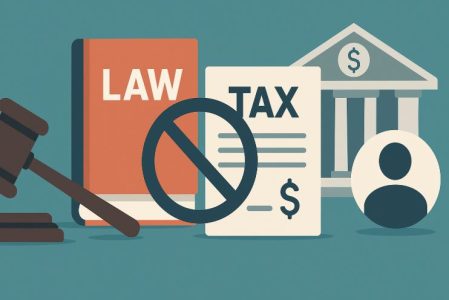
Despite its wide coverage, Section 111A is not universal. It applies only to specific asset types and conditions. Several transactions fall outside its scope and are taxed differently.
Assets Not Covered
- Unlisted shares
- Debt-oriented mutual funds
- Property and real estate
- Jewellery and precious metals
- Vehicles or movable assets
Even within equity investments, if STT is not paid, the transaction may lose eligibility under Section 111A, except in IFSC cases.
Another exception is for Foreign Institutional Investors (FIIs). Though they earn capital gains from listed shares, such gains are taxed differently under special provisions applicable to foreign investors.
In such cases, short-term gains are taxed at the normal slab rate or as per special tax regimes.
What is the Tax Calculation Method for STCG Under Section 111A?
Calculating tax under Section 111A involves a straightforward process. You compute the profit, deduct allowable expenses, and apply the flat tax rate of 20%.
STCG Calculation
| Particulars | Amount (INR) |
| Full value of consideration (sale value) | 1,40,000 |
| Less: Sale expenses (brokerage, STT, etc.) | 1,000 |
| Net Sale Consideration | 1,39,000 |
| Less: Cost of acquisition | 1,00,000 |
| Short-Term Capital Gain (STCG) | 39,000 |
| Tax @ 20% on STCG | 7,800 |
If the investor has other income, exemption limit adjustments may reduce this liability.
How Can Short-Term Capital Losses Be Set Off and Carried Forward?
Investors often face situations where they incur losses on short-term trades. Section 111A allows for set-off and carry forward of such losses under specific conditions.
Rules for Short-Term Capital Loss (STCL)
- Can be adjusted against both STCG and LTCG in the same year
- Unadjusted losses can be carried forward for up to 8 assessment years
- Cannot be adjusted against other heads like salary or business income
This feature helps investors plan for volatile years by reducing future tax liabilities with past losses.
What Should Investors Remember Before Filing STCG Under Section 111A?

Before filing your income tax returns, consider these key takeaways:
Important Considerations
- STCG under Section 111A is taxed at 20% post-2024
- Basic exemption limit can be adjusted only for resident individuals and HUFs
- Deductions under Chapter VI-A don’t apply to STCG under this section
- Losses can be carried forward for eight years
- Tax planning through ELSS or long-term investments can optimise savings
These reminders will help align investment choices with tax-saving opportunities, leading to better financial outcomes.
Conclusion
Section 111A plays a vital role in determining how profits from short-term investments in equity shares, mutual funds, and business trusts are taxed in India.
With the recent shift in tax rate from 15% to 20%, understanding the nuances of this section has become even more important for both seasoned investors and beginners.
While this section does offer clarity and predictability in taxation, it also comes with conditions, exclusions, and implications that should not be overlooked.
By knowing when and how it applies, and by making informed investment choices, taxpayers can ensure compliance while optimising their tax outgo.
Proper knowledge of STCG rules, exemption adjustments, and non-applicable deductions will make tax filing smoother and more strategic. Always consider consulting a tax advisor for customised planning based on your portfolio and income profile.
FAQs
Can non-resident Indians claim basic exemption under Section 111A?
No, only resident individuals and HUFs can adjust their basic exemption limit against STCG under this section. Non-residents are not eligible.
Are ELSS investments deductible from STCG under Section 111A?
No, deductions under Section 80C like ELSS cannot be used to reduce STCG taxed under Section 111A.
Can STCG be offset by capital losses?
Yes, short-term capital losses can be set off against both STCG and LTCG in the same year and carried forward for up to 8 years if not fully adjusted.
Is indexation benefit available under Section 111A?
No, indexation is not allowed for short-term gains under this section. The tax is calculated on the actual profit.
Does Section 87A rebate apply to STCG under Section 111A?
As of Finance Act 2025, the rebate under Section 87A is not available against STCG that is taxed under Section 111A.

